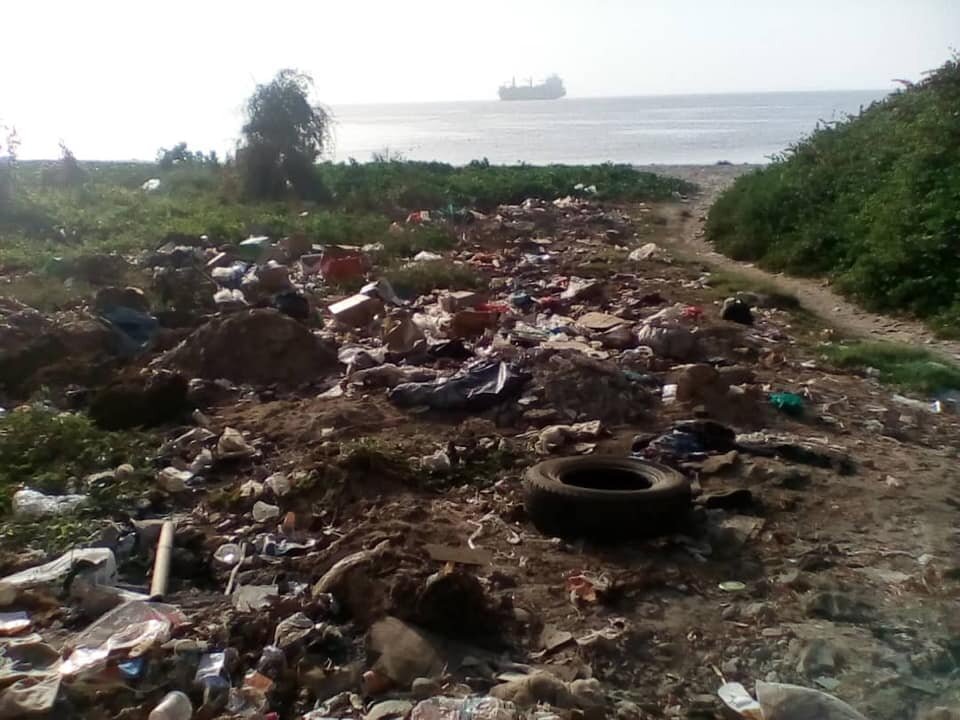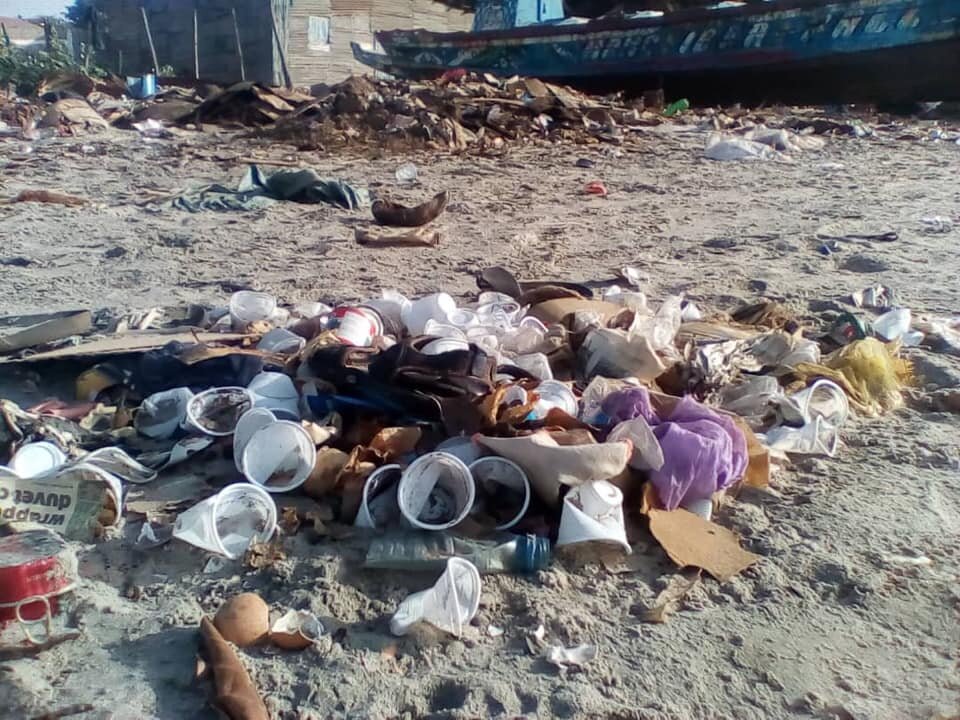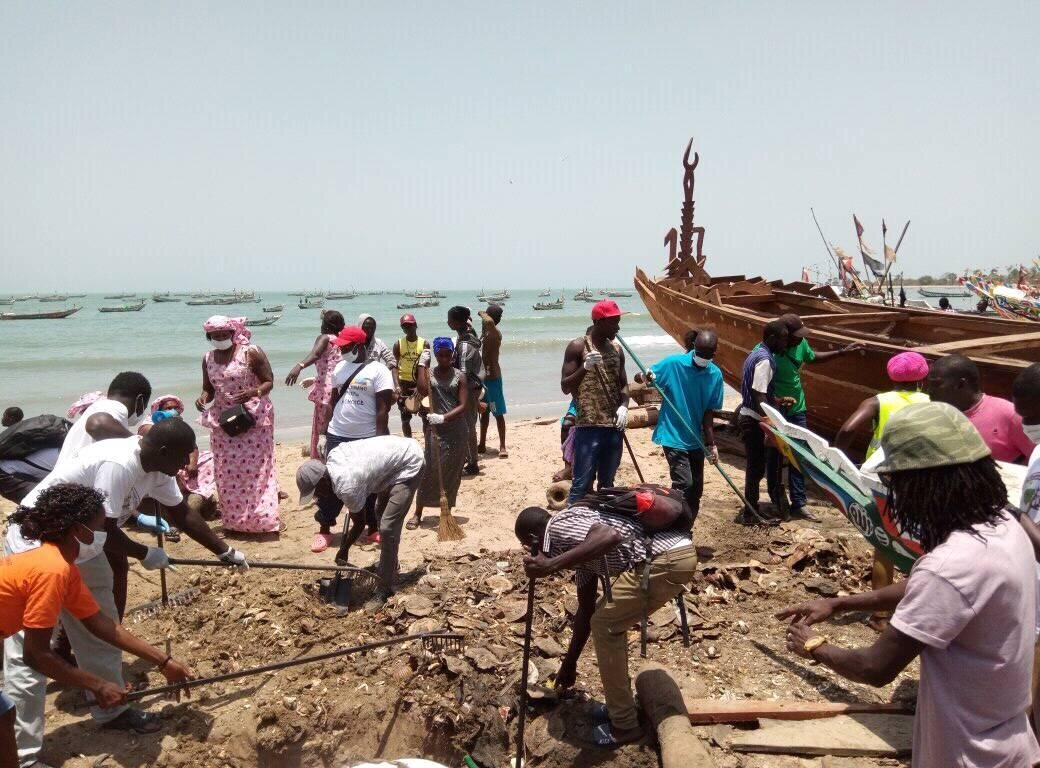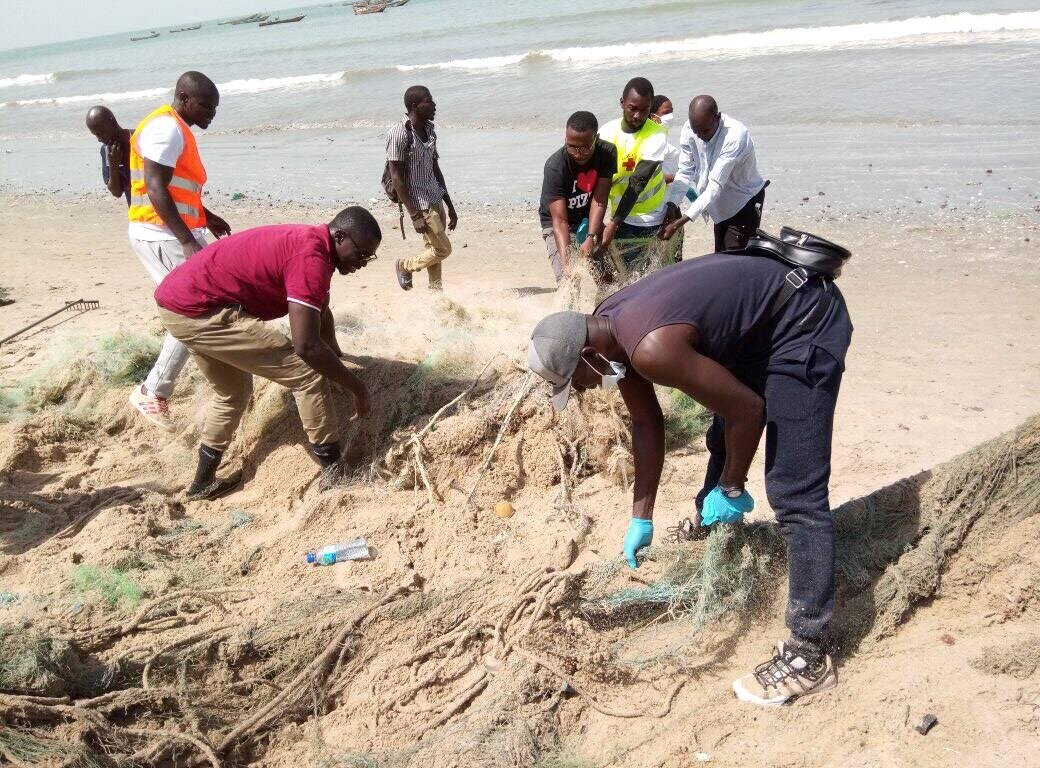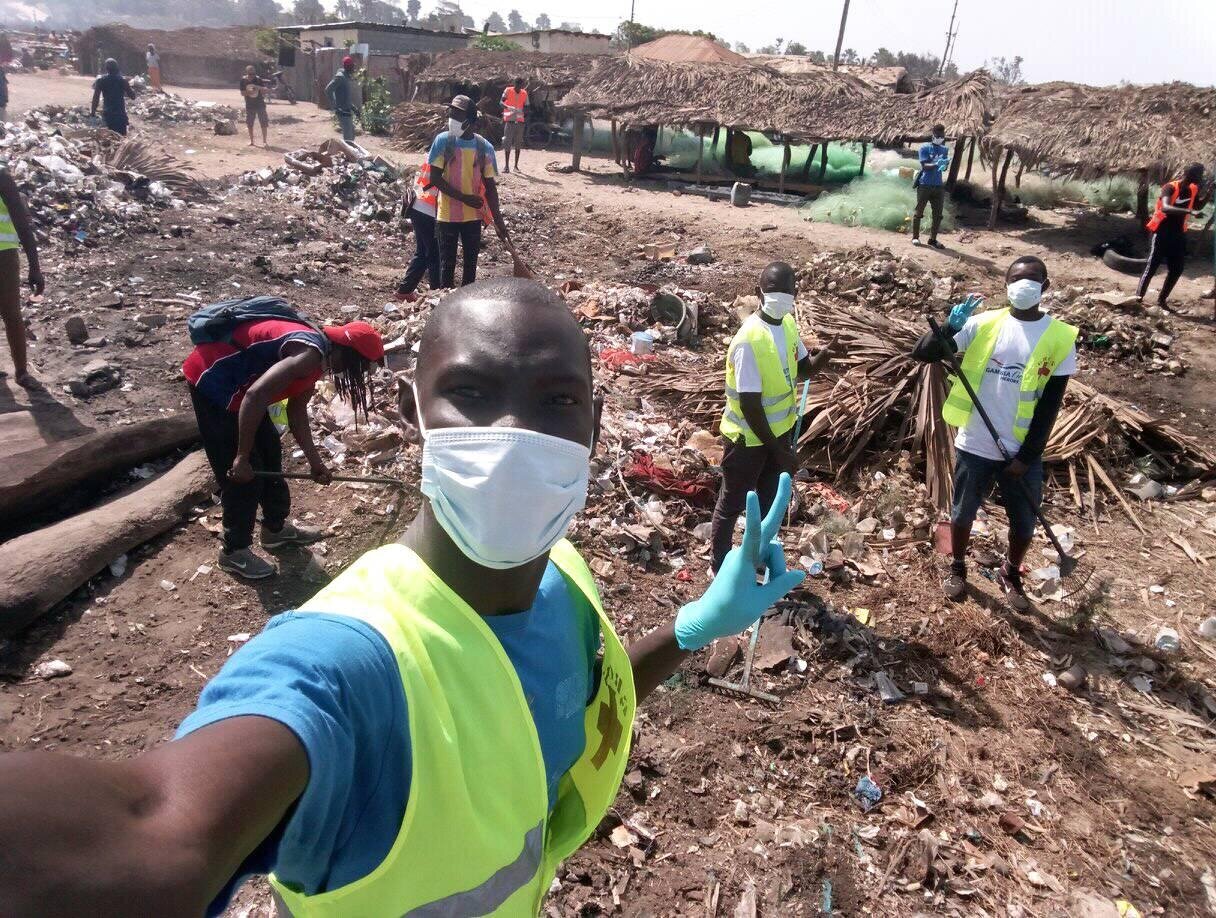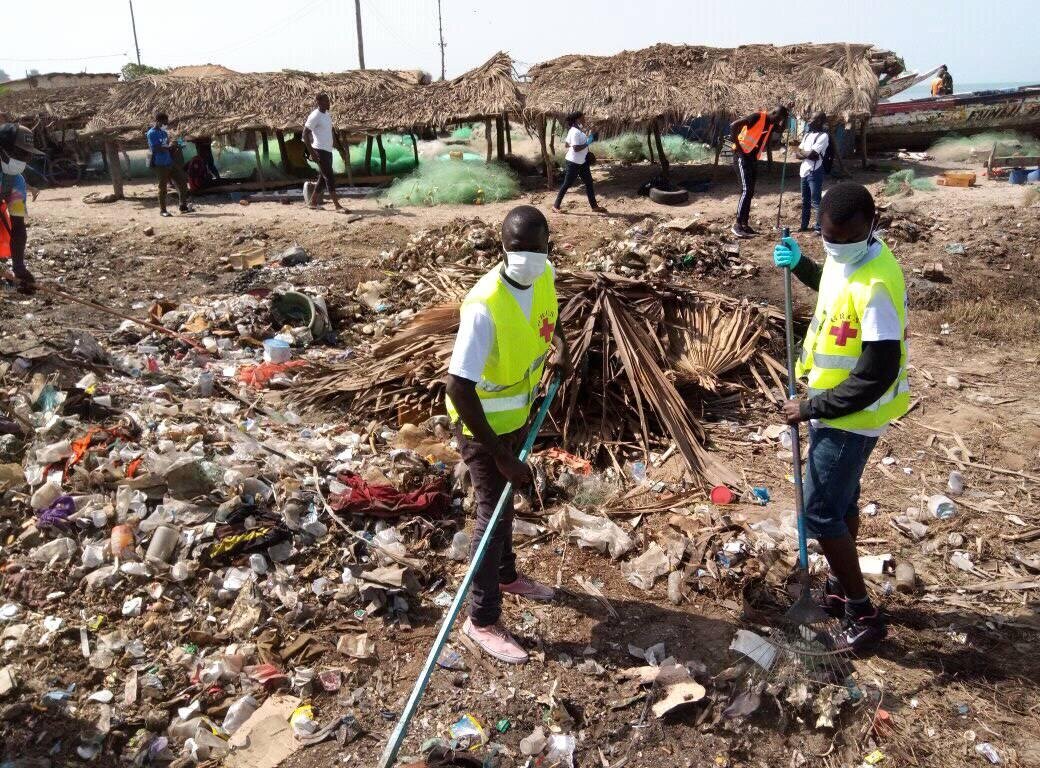Clean-Up Gambia
In the bid to raise awareness on contemporary environmental issues in the Gambia The clean up project is a flagship campaign that engages the public in environmental protection activities such as beach cleaning, street and dumpsite clean-ups, awareness raising on ending single use plastics, and duties for everyone in the fight against pollution.
How the project started:
Every last Saturday of the month The Gambia people under the Leadership of Yahya Jammeh cleaned the streets and waste begin to pile up on the streets . Generating was was so easy because you do not have to think where it goes next! This has been the norm behind waste in many sub Saharan countries. The Gambia is no exception.
There has been a general observation that in fact very few Gambians are aware of the Anti Littering Regulation. This also triggered this to bring to attention what the law says about where one disposes off waste in certain places. In march 2017 a protest was staged by residents of Bakoteh and Majai forcefully shutting down the biggest landfill in the Gambia.
The groups say The Gambia's landfills are an environmental disaster and were left completely unregulated under the previous government. But the Kanifing Municipal Council had long delayed to act and this created huge piles of rubbish all over the municipality and waste was later collected by locals and dumped in front of the mayor’s office in protest for the negligence of the council for failing to exercise control dumping mechanism and avoiding indiscriminate burning of waste.
The National Environment Agency’s mandate is to ensure an environmentally sustainable economic and social development in The Gambia, under the NEMA, 1994, is empowered to take direct implementation action in matters dealing with environmental especially in establishing environmental quality and monitoring standards, In the area of environmental quality exclusively taking into account pollution control.
Green-Up Gambia intervention to help address this problem by being a catalyst for social justice and create a headway to foster meaningful development through engaging authorities and the communities in the management of the dumpsite and putting strategies agreed upon by the authorities.
Engaging in site visit’s consultative meetings and fact finding observations in order to address challenges faced at the site to provide a clean and healthy environment, for the people of the municipality particularly the surrounding environment both in the long term and short term equations.
The following problems have been identified:
Infrastructure disruption, such as damage to access roads by heavy vehicles,
Pollution of water courses and ground water contamination
Air pollution due to thick smoke from burning of other radioactive waste.
Indiscriminate Dumping
Uncontrolled human resource and exposed workers (Scavengers/Security)
Breached areas of the fence and Dumpsite used as passage
The following action are key and must be prioritized by the KMC to avoid serious sanitation crisis.
A stationed bulldozer on site for a period of 90 days to be regularly pushing the waste and covering it.
Rehabilitation of the site; fix the breach areas of the fence and excavate the access roads as part of the roads become water logged and thus inaccessible causing rubbished to be dumped indiscriminately.
Restrict the dumping area from children and minors and establish a system of monitoring the activities of scavengers and improve security routines.
Unfortunately, the problem is bigger than just the sight of huge piles of waste. There are many health and environmental issues that are presented at Bakoteh dumpsite. When the project was initiated, Green-Up surveyed the people at the dumpsite to gain an understanding of their backgrounds and their needs. Collaborated with governmental offices at the local and national levels and together worked to address this complex, multi-faceted problem.
Green-Up Gambia has continued to work collaboratively with the Kanifing Municipal council and the Ministry of environment. The goal of our Dumpsite Project is to draw children away from the dumpsite and enrol them in schools. Also to help and train workers to practice safe recycling methods and ensuring safe and standards measures for landfill workers
Mitigate fire outbreaks causing serious pollution of the neighbourhood which houses the SOS children’s village, schools, hospitals.
Green-Up implements this though working with volunteers and KMC guards on site - these control measures were put in place:
To have a log book and ID cards for all scavenging activities on the site. Scavengers rely on this work to survive but should be monitored and given advice and support.
Closure of dumpsite to pedestrians and children loitering there.
Ensure that dumping only takes place in the land fill which will help the scavengers to carry on their recycling activities without setting fires. (Availability of a control system with log book data record will give a clear record of who is on the site at a particular time this will help stop the fires).
Supervise the daily activities happening in the dumpsite and send monthly updates to all parties.
Work with Bakoteh and Manjai community in the areas of sensitization with our module of innovative volunteerism to curb waste.
Recruitment and equipping of the youths to engage in the sensitization of the community and operators in the separation of waste generated and providing security and management of the dump site
Closure of dumpsite to pedestrians and children loitering there or using as a quick passage by residents by fixing the Gate and breached areas of the fence.
Provide fuel for the Fire and Rescue service in case of any emergency .
Current status:
On an ongoing basis, Green-Up Gambia provides enrichment activities, such as awareness raising sessions, Tree Planting around the dumpsite and other activities.
Looking ahead:
Awareness on waste segregation, and training on waste processing:
The changes that need to happen to prevent the children scavenging on site from being the next generation in the cycle of poverty. They deserve better living conditions and some degree of control families must be strengthened to avoid child labor as some of them are brought by parents to help on site. Strategies that need to be put in place before permanent holistic solutions are put in place.
Recommended actions:
It is crucial to educate people to generate less waste, for this reason, we propose a contribution under the form of a fee ‘’polluter’s pay principle’’ in order to fund the management of the waste on site. Establish strategies for waste segregation at house to house level or at communal dumpsites/ waste collection points. This practice will ameliorate air quality and improve the environmental and health condition of residents as there will be no burning of waste once segregation sets in.


